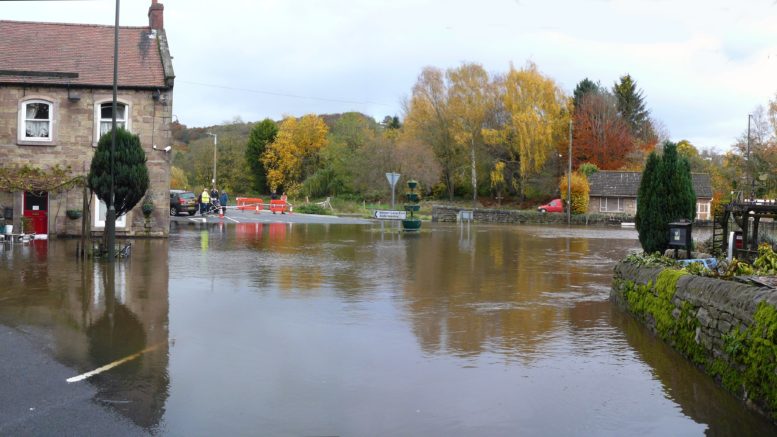Property emergencies can take minutes to occur and much longer to remedy. Therefore, it is essential that buy to let property investors understand their responsibilities and what can be done to ensure that property emergencies do not have devastating consequences.
Property managers, Y&Y Management, have offered advice for landlords in preparing for and dealing with property emergencies.
Flooding, especially in the winter months, is becoming more common. Recently, much of Yorkshire and the Midlands has seen devastating flooding in which a woman tragically died. Also, a burst pipe filled streets and homes along a quite backstreet in Finsbury Park hip-deep with water. As water rose through properties, inflicting thousands of pounds of damage, tenants were forced to flee their properties. These emergencies were caused by very different factors. However, it is essential that, when peoples’ lives and homes are at stake, landlords are prepared for any eventuality.
Most landlords will face property emergencies such as this at some point in their career. Understanding what can go wrong, and how to respond, can be invaluable in smoothing tenant relations and enhancing the reliability of a landlord’s brand.
There are numerous property emergencies of varying severity that a landlord can face, including fire, flooding, gas leakage, loss of heat or power, lockouts and break-ins. All property emergencies pose different challenges, but all demand on swift action. When an emergency strikes, it is essential that a tenant can trust their relationship with a landlord, safe in the knowledge that they can rely on them to fix the problem in their hour of need.
Firstly, the most important aspect is the safety and security of the tenants. The local authorities have systems in place to temporarily rehouse tenants who are displaced from their homes. While landlords are not responsible for tenants rehousing, supporting tenants during this disruptive time period goes a long way to maintaining positive relationships and reputations.
Property emergencies can provide real risk to tenant’s safety and a landlord should prepare to mitigate and respond to these events. As we have seen in Finsbury Park and recently in the North of England, flooding can have a lasting impact on peoples’ lives.
Fires, floods and gas leaks all have potentially life-threatening affects that must be dealt with immediately. In all cases, prevention is the best way to avoid emergencies like this. Ensuring fire alarms and carbon monoxide alarms are regularly checked, regularly servicing appliances and placing appropriate flood, security and fire prevention systems can make the difference between an emergency and a tragedy.
But in freak events it is important that a landlord acts quickly. Generally speaking, a landlord does not have an obligation to rehouse a tenant. In occasions where the tenant risks being made homeless, it is the Local Authority’s obligation to rehouse someone. However, there are certain obligations that a landlord has. If a landlord is deemed culpable for an incident by not adequately servicing a property, they will be liable to pay compensation to rehouse the tenant.
However, what can a landlord do about a freak accident? In situations where the gas or electric fails, having back-up options is advisable as a short-term fix. For instance, keep electric heaters in the property for if the gas fails, and ensure that there are battery powered torches that will allow tenants to light the house in the event in the electricity failing. This should allow a tenant to deal with an emergency until someone can arrive to fix it.
For many property emergencies, having a responsive and trustworthy contractor is essential. In particular, for cases where the property loses heat or power, or where there is a plumbing issue or tenants require a locksmith, a high-quality tradesperson can quickly rectify issues. However, property emergencies are not constrained by working hours and in these instances a landlord will have to think outside the box. Often prevention is the best form of remedy. This means regularly servicing the property and ensuring that all maintenance works are up to date.
During these repairs, a landlord is obligated to allow a tenant to leave if they so desire. This might result in a sustained loss of rent. Landlords should have both liability and building insurance that will cover compensation claims for tenant injuries, loss of rent and any cost incurred in rehousing a tenant. This is an essential and will provide the best long-term solution to property emergencies for a landlord.
Making sure that you are prepared for what can go wrong is the best way to avoid property emergencies having serious consequences. This can be done, primarily, through ensuring that the property has undergone the relevant safety checks. But it is also essential that a landlord has good insurance and some short-term remedies prepared, allowing them to reduce the effects of a property emergency.
It is crucial to understand that bad things will happen that are out of your control. The key is not to dwell on the fact that they have happened, but how quickly you, as a property manager, can make things right.








Be the first to comment on "Preparing for and Dealing with Property Emergencies"